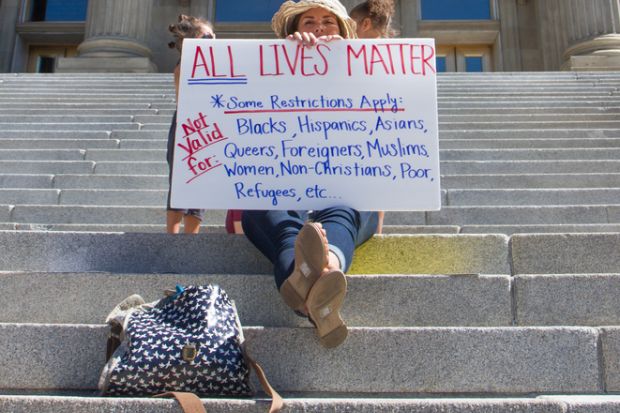New research details for the first time how the disadvantages faced by female academics in universities are exacerbated by factors such as ethnicity and sexuality.
A major survey of academics working in 43 UK universities in science, technology, engineering, mathematics and medicine subjects, conducted by the Equality Challenge Unit (ECU), found that male respondents reported receiving better access to training in every area except teaching. This translated into “significant gender gaps in training on administrative tasks related to management, grant application skills, project planning and financial management”, all highly relevant to “developing skills as a researcher and obtaining more senior positions”, the report says.
Yet, among black and ethnic minority women, 9.4 per cent stated that “an obstructive or unhelpful line manager [had] block[ed] their access to training”, compared with 6.6 per cent of white women. The proportion for women identifying as lesbian, gay or bisexual was, at 14.2 per cent, more than twice as high as that for heterosexuals (6.4 per cent).
The Athena Survey of Science, Engineering and Technology, published on 5 April, surveyed 4,871 academics – 2,050 male and 2,821 female – about their perceptions of gender equality. Although it builds on a series of earlier reports, it is the first to explore in detail how ethnicity and race, sexual orientation, disability and age aggravate the obstacles already faced by female academics.
The report says that the issues that applied to training were also apparent in many other areas, noting that black and ethnic minority women were “exposed to compounded disadvantage”. For example, they were “least likely to have been formally invited or encouraged to apply for promotion or undertake activities that would develop their careers”. They also reported having less access to flexible working options than white women.
Meanwhile, the report concludes, gender gaps tend to “widen with age”, disabled academic staff “experience a serious lack of opportunities for career progression in [these disciplines], over and above existing gender gaps”, and sexual orientation may also impede career progression. Some 9.1 per cent of heterosexual female respondents said they were professors compared with only 3 per cent of those identifying as lesbian, gay or bisexual.
“These findings underline that more work needs to be done if we are to achieve gender equality in higher education,” said Sarah Dickinson Hyams, ECU’s head of equality charters. “ECU urges the sector to engage with this research and take action to address the issues raised.”




